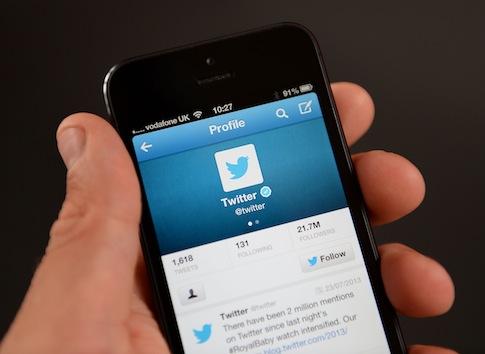The technology that companies provide their employees can now be used to aid unionization campaigns under new federal labor rules, according to leading labor experts.
The National Labor Relations Board, a top federal labor arbiter, ruled in Purple Communications that employees have the right to use work email and other technology as they please. The case revolved around sign language interpreters who wanted to unionize and challenged a company policy prohibiting the use of work email for non-business activities.
Steve Bernstein, a management-side labor lawyer, said that the board’s decision gives companies an incentive to roll back the use of technology in the workplace. The board overturned a seven-year precedent that gave companies "the latitude to control their electronic systems," since they paid for the technology and network capacity for business purposes.
"The agency chose to take this moment to declare new doctrine … basically telling the working world that emails are a form of speech, that it’s not fair to allow businesses to curtail that speech," Bernstein said. "If an employer makes email and electronic devices available then employees can use that with free rein."
Since employers will no longer be able to regulate how work computers and cell phones are used, they may back away from giving them to employees. The NLRB has complicated the use of technology in business, according to Bernstein, a lawyer at Fisher & Phillips.
"Businesses are starting to take hard look at whether to make these systems available at all when they can’t control them as they once did. Pandora’s box has been opened," he said.
While companies will experience diminishing returns on complimentary technology for employees, the decision will prove a worthy investment for unions.
A day after publishing the Purple Communications decision, the board issued so-called ambush election rules. The guidelines published Friday speed up the election process and expand the amount of personnel information companies must give to union organizers—including access to company emails.
NLRB Chairman and former union lawyer Mark Gaston Pearce said the new rules represented a step toward adapting the election process to the 21st century.
"Simplifying and streamlining the process will result in improvements for all parties. With these changes, the Board strives to ensure that its representation process remains a model of fairness and efficiency for all," he said in a release.
The rules were roundly criticized by Republican lawmakers and labor watchdogs because they give employers a few weeks to counter union arguments that have been made over the course of months or even years of campaigning. David Phippen, a management-side attorney at Constangy, Brooks, & Smith, said the rules "went beyond" what he expected from the board.
"The new rules will compress time frames and will likely take away employer and employee rights to raise bona fide practical and legal issues relevant to the election proceeding at times that make sense, ultimately impairing employees' rights and opportunities to make informed decisions about union representation," he said.
Bernstein also expressed concern over the timeframe, but added that the inclusion of email and other personal information was even more worrisome. Union organizers previously had access to employee home addresses. The new rules give them access to company email and employee phone numbers, allowing them to wage round-the-clock virtual campaigns.
"Unions have been working harder than any other interest group to overturn" existing rules on contact information, Bernstein said. "Unions organize through communication. Employers until now have controlled access to their company systems, so this becomes an access issue."
The new rules when taken together with the Purple Communications decision will make it easier for labor organizers to win elections, according to Bernstein. Pro-union employees will be able to use their company servers and email addresses to advance the union cause without fear of regulation from the company.
"Unions are less inclined to invest resources unless it’s going to achieve a good rate of return. This is perfect storm. Unions will have unprecedented access directly to the working populace while knowing they can enjoy representation elections within a limited timeframe," he said.
Bernstein said the email rules could have a "slippery slope" effect on future NLRB decisions regarding union access to the workplace. If employers are no longer entitled to control of their technological private property, they also cannot expect to protect their property rights over company grounds under the board’s logic.
"The bigger picture is ultimately equal access not just electronically, but physically. We’ll lose the right of an employer to safeguard its premises from trespass and see unions demanding access to employer facilities to campaign," he said.
The NLRB’s new election proposals are scheduled to take effect in April.
